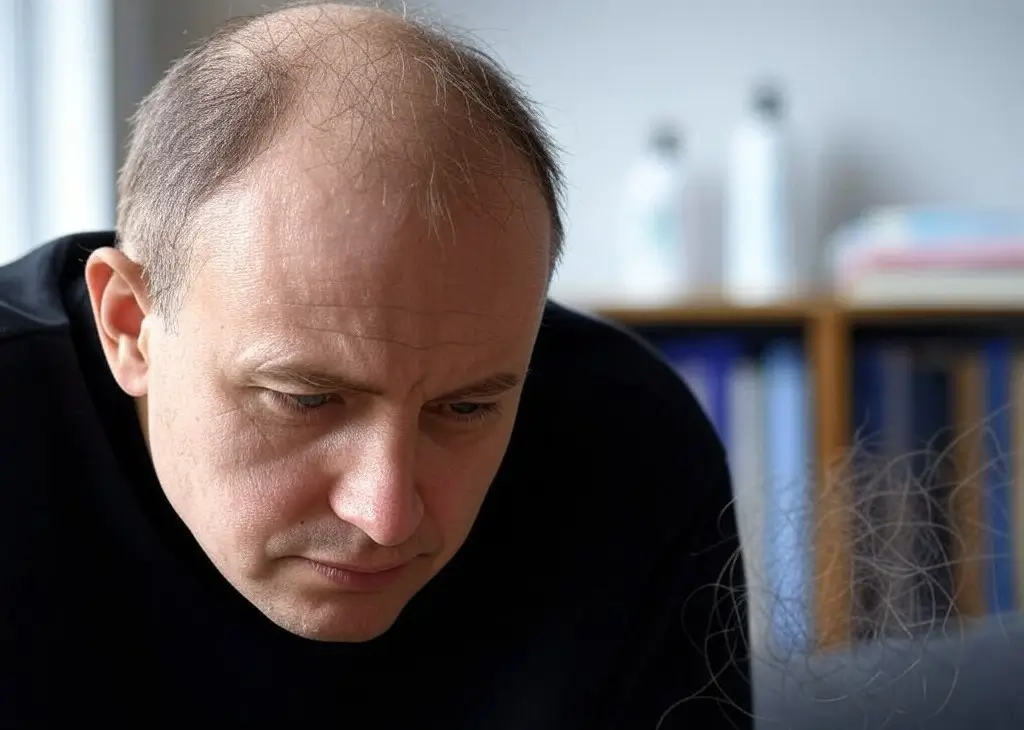Causes of Hair Loss
Arman Karagah

Introduction
Hair loss is a common issue that many people encounter at various stages of life. This condition can impact self-confidence and overall quality of life. Understanding the causes of hair loss can help manage and treat it effectively. Additionally, many individuals visit hair salons to improve the appearance of their hair.
Main Causes of Hair Loss
1. Genetic Hair Loss
One of the most common reasons for hair loss is genetic factors. In this type of hair loss, the pattern typically repeats within families and is more prevalent in men, although women can also experience this issue.
2. Hormones and Hormonal Changes
Hormonal changes play a significant role in hair health. Pregnancy, menopause, or conditions like thyroid disorders can lead to hair loss. Abnormal increases or decreases in certain hormones can also affect hair growth.
3. Vitamin and Mineral Deficiencies
Deficiencies in nutrients such as iron, biotin, and zinc can result in hair loss. These nutrients are essential for strengthening hair roots and promoting healthy growth.
4. Medical Conditions and Diseases
Conditions like alopecia areata, thyroid problems, or diabetes can cause hair loss. Diagnosing and treating these conditions is crucial to prevent further hair loss.
5. Medication Side Effects
Certain medications may have side effects, including hair loss. Chemotherapy, antidepressants, and blood pressure medications are among the culprits.
6. Poor Nutrition and Inadequate Diet
An unbalanced diet and insufficient calorie intake can weaken hair and lead to shedding. Consuming foods rich in vitamins and proteins can help prevent this issue.
7. Improper Hair Care
Frequent use of heat tools like hair dryers and straighteners, as well as harsh chemicals in strong dyes and perms, can damage hair and cause it to fall out. To avoid these issues, many people turn to professional salon services.
8. Scalp Skin Disorders
Conditions such as dandruff, psoriasis, and fungal infections can affect the scalp and lead to hair loss.
Treatments and Lifestyle Changes
- Adopting a balanced diet rich in nutrients.
- Managing stress through relaxation techniques such as yoga and meditation.
- Practicing proper hair care and using suitable products.
- Visiting professional salons for grooming or enhancing hair appearance.
When to See a Doctor
If hair loss becomes severe and continuous or is accompanied by symptoms like itching or scalp sores, consulting a specialist is recommended. Early diagnosis can prevent the progression of the problem.
Conclusion
Hair loss can stem from various causes, including genetic and hormonal factors, nutritional deficiencies, and improper care. By identifying the exact cause and following proper care routines, it’s possible to control this issue and improve hair health. Professional services at salons can also enhance appearance and boost confidence.
Frequently Asked Questions
1. What is the main cause of hair loss in women?
Hormonal changes and nutritional deficiencies are primary factors.
2. How does stress cause hair loss?
Stress disrupts the hair growth cycle, leading to sudden shedding.
3. Can an improper diet lead to hair loss?
Yes, a lack of vitamins and minerals in the diet can weaken hair and cause shedding.
4. Is hair loss always permanent?
No, many cases of hair loss are treatable.
5. What natural remedies can reduce hair loss?
Maintaining a healthy diet, managing stress, and using natural care products can help.
